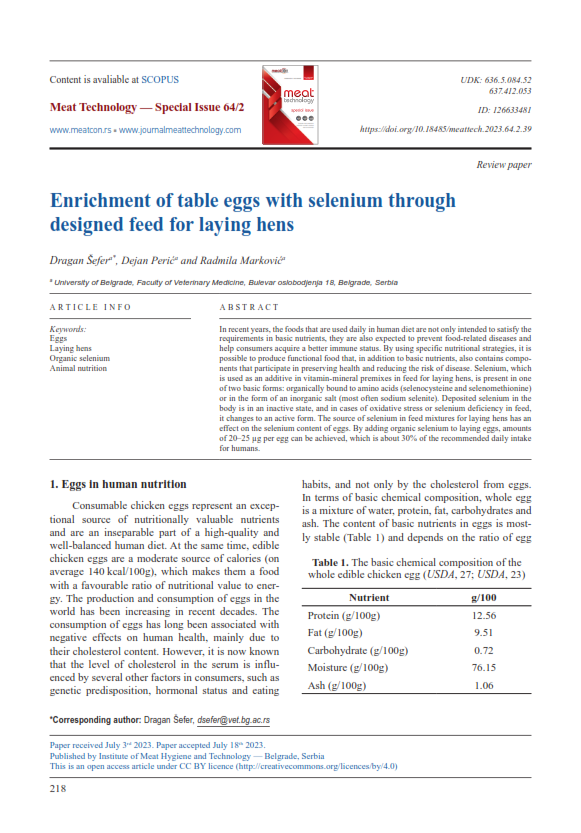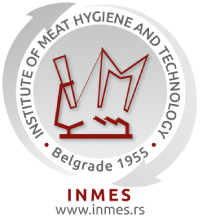Enrichment of table eggs with selenium through designed feed for laying hens
Abstract
In recent years, the foods that are used daily in human diet are not only intended to satisfy the requirements in basic nutrients, they are also expected to prevent food-related diseases and help consumers acquire a better immune status. By using specific nutritional strategies, it is possible to produce functional food that, in addition to basic nutrients, also contains components that participate in preserving health and reducing the risk of disease. Selenium, which is used as an additive in vitamin-mineral premixes in feed for laying hens, is present in one of two basic forms: organically bound to amino acids (selenocysteine and selenomethionine) or in the form of an inorganic salt (most often sodium selenite). Deposited selenium in the body is in an inactive state, and in cases of oxidative stress or selenium deficiency in feed, it changes to an active form. The source of selenium in feed mixtures for laying hens has an effect on the selenium content of eggs. By adding organic selenium to laying eggs, amounts of 20-25 µg per egg can be achieved, which is about 30% of the recommended daily intake for humans.





